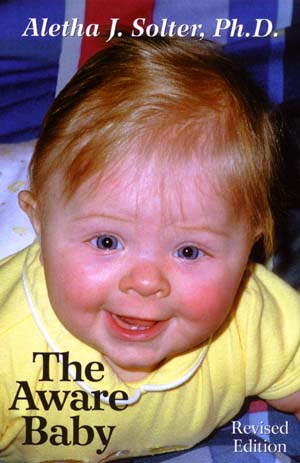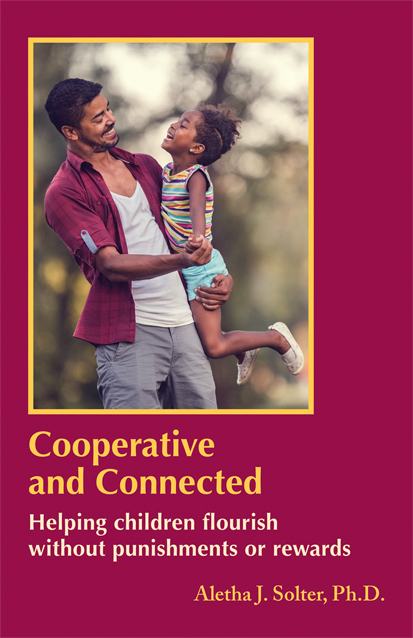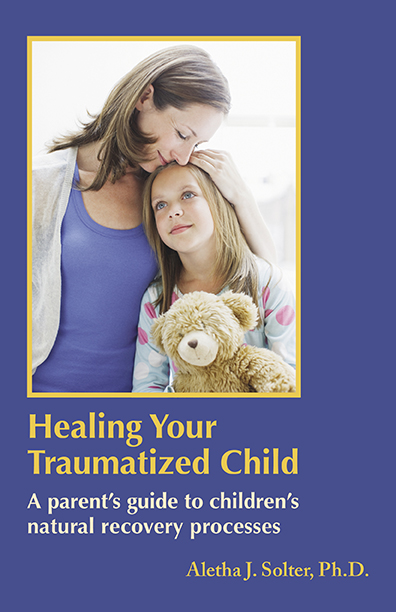Is masturbation inappropriate for four-year-olds?
by Aletha Solter, Ph.D.
Question:
My four-year-old seems to use pillows and blankets (balled up) to put under her and rock back and forth on, like she is getting somehow stimulated. How can I break this habit, and should I be worried about it? Is this normal?
Answer:
Masturbation in young children often concerns parents, but it is usually nothing to worry about. Some children discover the pleasurable sensations from rubbing their genitals, while others don't. In either case, it is usually quite normal.
In the past, children were severely humiliated and punished for masturbating. Nowadays, most psychologists (myself included) think that it's important for healthy sexual development to let children know that it is okay to feel pleasure from self-stimulation. However, it is also necessary to teach children that this behavior is something to do in private.
You can say to your daughter, "It feels good to rub yourself like that. But it's something that people do in private, just like going to the toilet." If she forgets, and stimulates herself when you have visitors, you can gently draw her attention to her behavior (privately), acknowledge that it feels good, and remind her of what you said. Try to avoid making your daughter feel that she's doing something wrong. It is inappropriate to punish her or send her to her room. A gentle reminder should be sufficient, just as you would remind her not to pick her nose in public.
If your daughter regularly uses masturbation to relax and fall asleep at night, this may be an indication that she needs someone to stay with her until she falls asleep. You can hold her or lie down with her until she falls asleep.
It's also important to know that regular frequent and prolonged masturbation can be an indication of stress or sexual abuse. I will briefly discuss these two possible underlying causes.
Children who are stressed or who have experienced any kind of trauma often develop self-stimulating behaviors such as thumb sucking, self-rocking, or masturbation. These repetitive behaviors can be an indication that a child is holding in painful emotions. If you think that your daughter is using masturbation in this way, it would be useful to look for possible sources of stress (or trauma) in her life, and to reduce stress, if possible. She would also benefit from being allowed greater freedom to release painful emotions through tears, tantrums, play, and laughter, as described in my books.
Sexual abuse is a specific kind of trauma that can lead to masturbation. Children who have been sexually abused develop a precocious awareness of their genitals and often begin to masturbate. It's important to be aware of this possible cause, especially if you notice other symptoms of sexual abuse (such as an increase in fears or nightmares, regression in toileting habits, social withdrawal, or reluctance to stay with a specific person).
If your daughter is otherwise happy and outgoing, however, and her self-stimulating behavior occurs only occasionally, you probably don't need to be too concerned about it.
About Aletha Solter:
Aletha Solter, PhD, is a developmental psychologist, international speaker, consultant, and founder of the Aware Parenting Institute. Her books have been translated into many languages, and she is recognized internationally as an expert on attachment, trauma, and non-punitive discipline.
Aware Parenting is a philosophy of child-rearing that has the potential to change the world. Based on cutting-edge research and insights in child development, Aware Parenting questions most traditional assumptions about raising children, and proposes a new approach that can profoundly shift a parent's relationship with his or her child. Parents who follow this approach raise children who are bright, compassionate, competent, nonviolent, and drug free.


